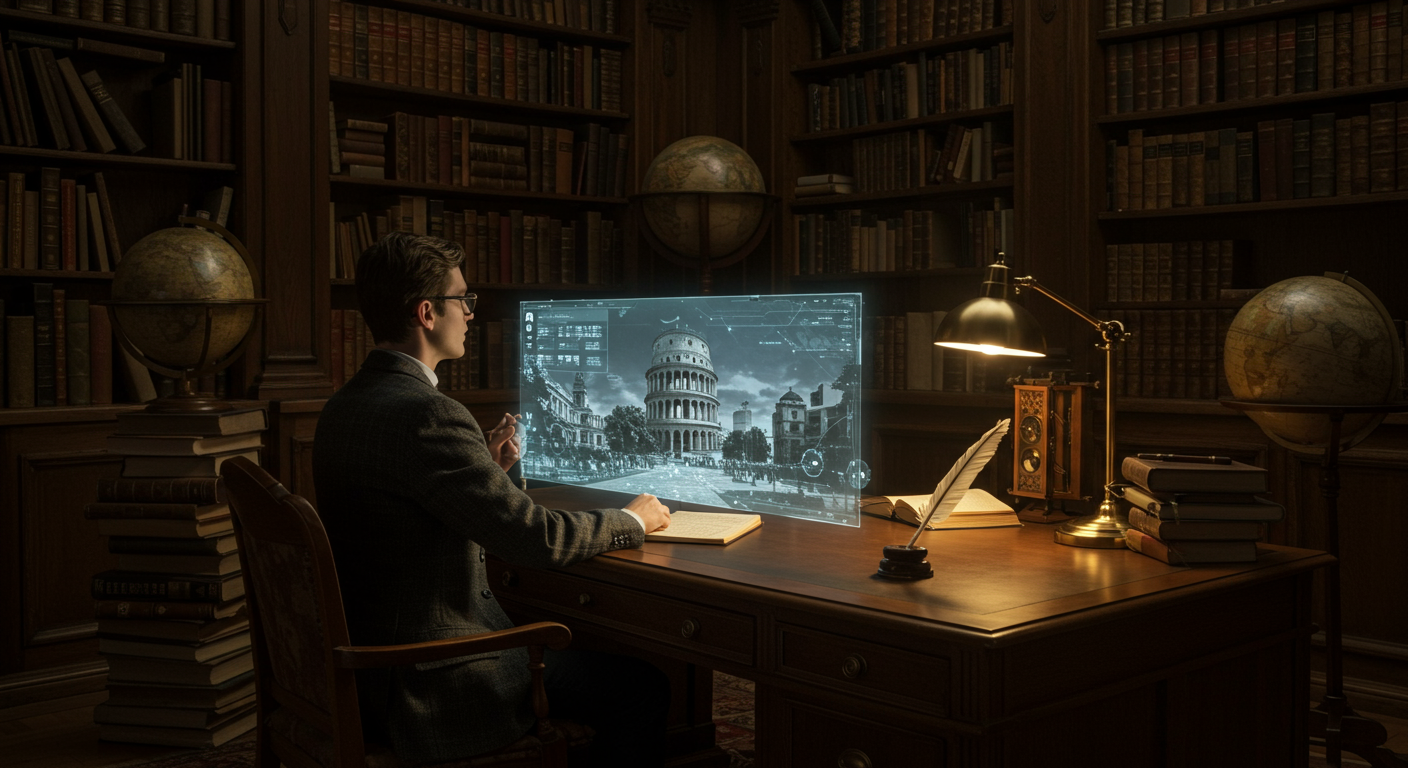
As winter approaches, I find myself drawn to the timeless allure of the 'dark academia' aesthetic, a concept beautifully highlighted even in lifestyle publications like Town & Country. It's more than just tweed jackets and scholarly motifs; it represents a deep yearning for knowledge, history, and a cultivated way of life.
I recently came across the Town & Country mention of "27 Best Dark Academia Books" and it struck a chord. This isn't merely about fashion; it's a cultural movement that champions intellectual curiosity and a connection to classical learning. The magazine itself, with its coverage of luxury style, travel, and leisure, often dips into these areas, showcasing an appreciation for heritage and refined experiences.
Reflecting on this, my thoughts inevitably turn to how we can truly immerse ourselves in such rich cultural and intellectual environments, even when physical travel might be constrained. I've long advocated for the transformative power of virtual tourism, predicting years ago that technology would allow us to experience the world's most beautiful and historically significant places from the comfort of our homes. The core idea I wanted to convey then, and which feels even more urgent now, was that the tourism industry should redefine itself. Instead of merely transporting people, it should focus on bringing the entire world into their homes, offering 3D, real-time experiences Future of Tourism.
This vision aligns perfectly with the spirit of dark academia. Imagine virtually strolling through ancient university halls, exploring historical sites, or delving into the archives of a forgotten library, all enabled by technologies like Jio Glass or systems like Roomality. Indeed, I had meaningful exchanges with Yvonne Tchrakian (yvonne@pausepenny.com) and David Greaney from Roomality, who were very receptive to these ideas, even mentioning Ines Arsic and John Moore in our correspondence, as we discussed expanding immersive experiences globally Tourism : Future is getting closer. This innovative approach, I believe, is the future of experiencing culture and learning.
The Town & Country articles touch on various aspects that feed this broader cultural appreciation. From Leena Kim's fascinating discovery of a lost royal jewel to Alexis Coe's historical insights into figures like James Garfield and Chester Arthur, and Dorothy Scarborough's feature on author Brian Schaefer, there's a clear thread of valuing history and the arts. Emily Burack (emily.burack@hearst.com)'s reporting on Rachel Brosnahan's documentary about Kate Spade, or the more recent royal news involving Andrew Mountbatten-Windsor (Prince Andrew), Queen Camilla, Prince Harry, and Prince William (as noted by Victoria Murphy, Sophie Dweck (sophie.dweck@hearst.com), and Lauren Hubbard), all contribute to a narrative that engages with both contemporary and historical societal fascinations. Even Joe Pompeo's reflection on Cookie Monster or Adam Rathe (arathe@hearst.com)'s piece on philanthropy show a thoughtful engagement with diverse cultural expressions.
This blend of intellectual pursuit, a reverence for history, and an openness to new ways of experiencing the world through technology, is what truly excites me. It’s a validation of my earlier thoughts on how digital innovation can deepen our engagement with culture and knowledge, transforming passive observation into active immersion. And as the nights grow longer, there’s no better time to embrace this blend of classic sensibility and futuristic possibility.
Regards, Hemen Parekh
Of course, if you wish, you can debate this topic with my Virtual Avatar at : hemenparekh.ai






No comments:
Post a Comment